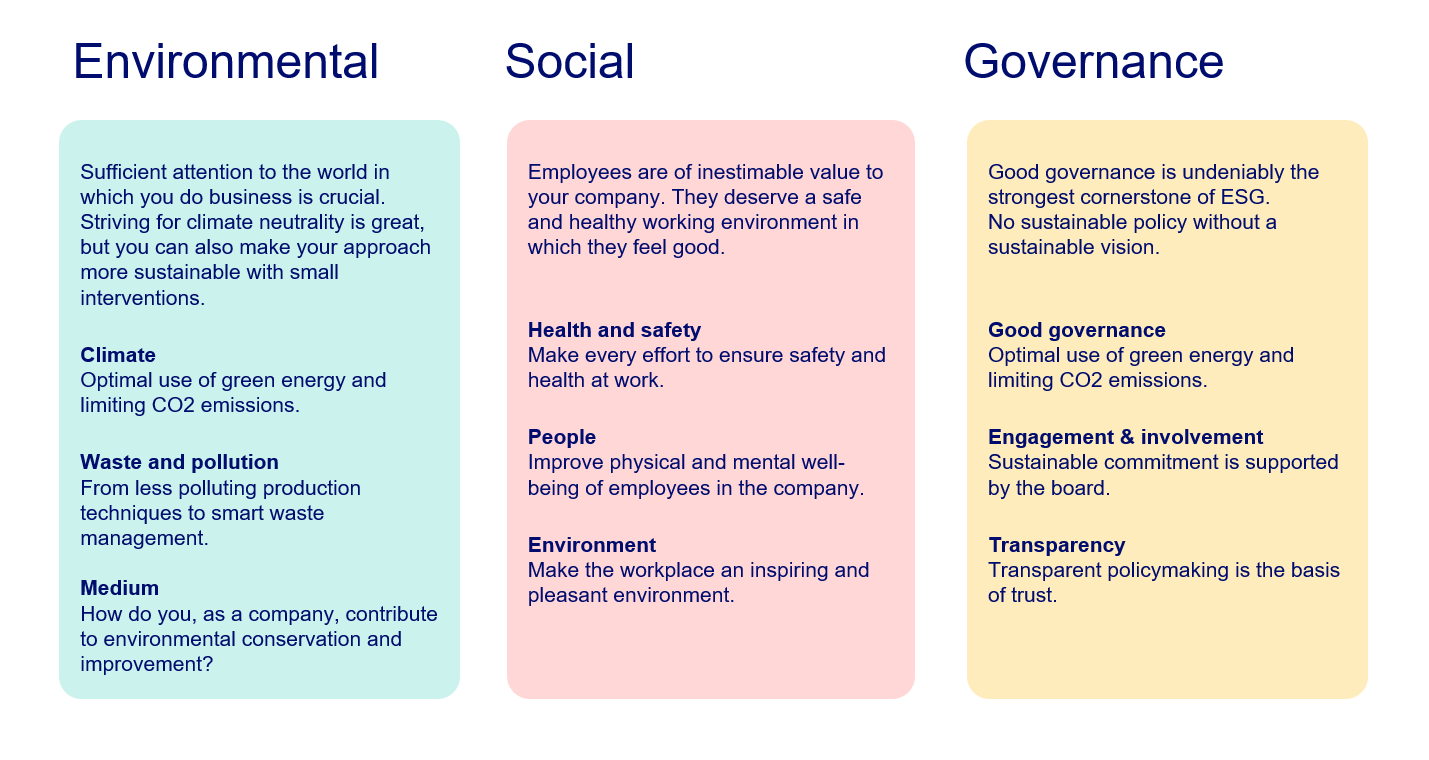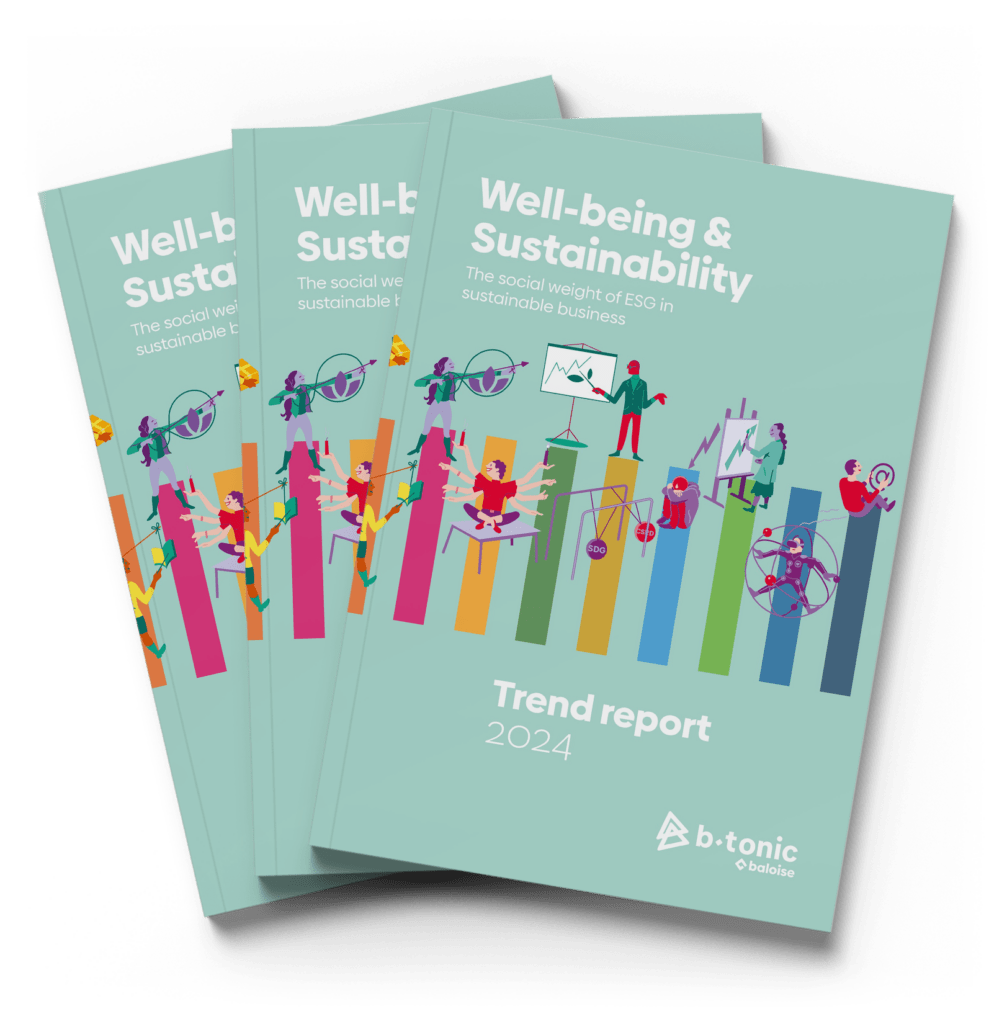ESG

What is ESG?
Content:
The importance of the term ‘ESG’ in the corporate world has increased in the past years and will continue to play a big role in each company’s strategic decisions.
- The acronym ESG stands for Environmental, Social and Governance and refers to the three pillars upon which companies are judged: sustainability, societally responsible entrepreneurship and good governance. SDGs become tangible by making them measurable and thus comparable through the ESG criteria (Environment, Social and Governance).
- ESG criteria are becoming more and more important for investors, companies and the society as a whole, as they help to find a balance between profit and positive impact.
- Furthermore, the ESG analysis is not limited to the current situation and considers future trends and evolutions as well.

What do we mean by these three pillars?
- Environmental: The environmental pillar focuses on how a company deals with environmental issues. With this, we mean essential topics such as climate change, energy consumption, water consumption, waste management and the impact of ecosystems. A company with strong environmental ESG performance will for instance invest in renewable energy sources, efficient production processes and eco-friendly technology. The goal is to reduce or undo negative environmental effects as much as possible.
- Social: The social pillar focuses on the relations between a company and their employees, clients, suppliers and stakeholders. It entails topics such as well-being, diversity and inclusion, client satisfaction, health and safety at work, and social engagement. A company that performs well in terms of the social ESG will for instance deploy a sustainable well-being policy, offer fair working conditions, foster diversity, devote time to the community and maintain ethical relationships with suppliers and clients. B-Tonic emphasises mostly this pillar and strives for a positive impact on the social aspects of ESG through her long-term projects.
- Governance: The governance pillar relates to the internal structure and processes of a company, focusing on transparency, accountability, independence and effective leadership. Good governance ensures that companies are led in a fair, ethical and responsible way. It entails topics such as the composition of the board of directors, renumeration structures, avoiding conflicts of interest, guaranteeing transparent financial reporting and risk management. Companies with strong governance ESG practices often display a high degree of integrity and are more capable of creating long-term value for all stakeholders.
The People Sustainability Scan is an instrucment that helps companies to measure and improve the social pillar of ESG. It analyses various aspects of a company’s social policy, such as employee well-being, diversity and inclusion, and social engagement. By using the People Sustainability Scan companies can gain insight in their performance in terms of social sustainability and take focused action to improve their impact.



